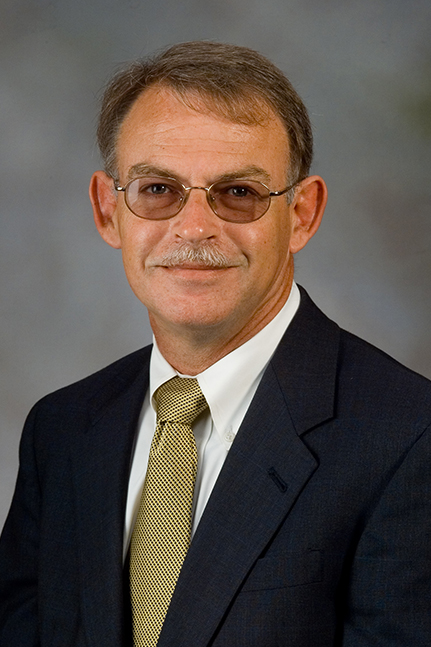Robert W. Walters to retire as vice president for research after 30 years of service to Virginia Tech

Robert W. Walters, vice president for research, has announced plans to retire effective Sept. 1, 2015, Virginia Tech President Timothy D. Sands said today.
Walters served Virginia Tech for 30 years, including eight years as vice president for research. With his oversight, National Science Foundation-reported research expenditures at the university grew by approximately $175 million — from $321.7 million in 2006 to $496.2 million in 2013.
“Dr. Walters’ leadership further established Virginia Tech as the Commonwealth of Virginia’s leading driver of innovation and invention,” Sands said. “He brought a singular understanding of federal agencies, industry, and entrepreneurship to the position, and built a strong platform for growth of Department of Defense-sponsored research. Because of his efforts, Virginia Tech is positioned to continue its progress to become an elite research university.”
During Walters’ service as vice president for research, Virginia Tech remained the only Virginia institution in the top 50 of the National Science Foundation research expenditure rankings, climbing to No. 40 in the most current national standings.
“Concurrent with this period of tremendous research growth, Dr. Walters strengthened the campus infrastructure for research compliance, research faculty, and research education,” Provost Mark McNamee said. “He used his experience to enrich and streamline processes for faculty, to the benefit of all of Virginia Tech’s missions.”
Walters said he will continue to head the research division in the coming months and work toward a smooth transition of leadership.
“Your collective efforts have aided the university by increasing the research ranking, stature, and reputation of Virginia Tech,” Walters told colleagues on Tuesday. “I am proud of the efforts that all of you have made to advance the research and discovery mission of the university.”
Walters was a professor in the Department of Aerospace and Ocean Engineering in the College of Engineering from 1985 to 1997.
In 1988, Walters founded AeroSoft Inc., a company that specializes in computational fluid dynamics software development and applications to develop solutions for the aerospace and defense industries.
Ten years after the formation of AeroSoft, Walters sold the company to employees. He continued with the Department of Aerospace and Ocean Engineering and became its department head in 2002.
“It has been my honor to serve the university as vice president for research and in several other capacities since I first arrived on campus in August 1985,” Walters said. “I look forward to spending more time for leisure travel, working on the farm, and most importantly, visiting my children and grandchildren, who are spread out across the country.”
Walters’ primary research has been in computational fluid dynamics with a focus on algorithm research. He has been recognized with an IBM Supercomputing Award, a NASA Certificate of Recognition, and a NASA Group Achievement Award. He is a member of the NASA Aeronautics Research and Technology Roundtable of the National Academies.
In addition, Walters is the former chairman of the Aerospace Department Chairs Association and is an Associate Fellow of the American Institute of Aeronautics and Astronautics (AIAA). He has also has served as associate editor of the AIAA Journal and is a past chairman of the AIAA Ethics Committee.
Walters earned a Ph.D. in aerospace engineering in 1984, a master’s degree in mechanical engineering in 1978, and a bachelor’s degree in nuclear engineering in 1977, all from North Carolina State University, where he is a member of the university's College of Engineering Hall of Fame. Upon completion of his Ph.D., he worked at the NASA Langley Research Center as a research associate of the National Research Council.
Dedicated to its motto, Ut Prosim (That I May Serve), Virginia Tech takes a hands-on, engaging approach to education, preparing scholars to be leaders in their fields and communities. As the commonwealth’s most comprehensive university and its leading research institution, Virginia Tech offers 240 undergraduate and graduate degree programs to more than 31,000 students and manages a research portfolio of $513 million. The university fulfills its land-grant mission of transforming knowledge to practice through technological leadership and by fueling economic growth and job creation locally, regionally, and across Virginia.



